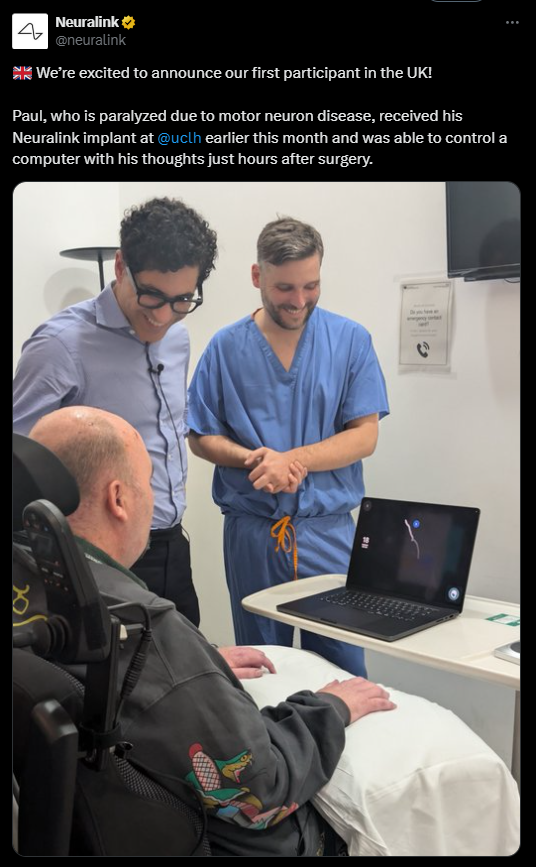• Neuralink successfully implanted its brain chip in the first UK participant, a paralyzed man named Paul.
• The patient was able to control a computer through thought within hours of surgery.
• With 13 participants worldwide, Neuralink’s trials are expanding — here is how the tech could redefine human potential.
Elon Musk’s brain-computer interface company Neuralink has achieved another breakthrough, successfully implanting its brain chip in its first UK participant, a paralyzed man named Paul who suffers from motor neuron disease. The surgery, performed earlier this month at University College London Hospitals, marks Neuralink’s first human trial outside the United States. According to the company’s announcement on X, Paul was able to control a computer using only his thoughts within hours after the procedure — a milestone that highlights the potential of direct neural control technology.

From Thought to Action: A Life-Changing Milestone
Neuralink revealed that Paul is now working with its engineers to explore more applications for the implant, including playing his favorite video games like Dawn of War and performing tasks that could enhance his independence. The company’s main device, called “the Link,” uses a tiny neural chip with 64 ultra-thin threads that detect brain signals, translating them into digital commands. This allows users to interact with computers and connected devices directly through neural activity — a technology aimed at restoring mobility and communication to people with paralysis.
Neuralink’s Growing Global Footprint
The successful UK surgery represents a significant step in Neuralink’s international expansion. Founded by Musk in 2016, the company’s mission is to build a seamless bridge between the human brain and machines. As of Monday, 13 human participants have received Neuralink implants, all contributing data to ongoing clinical trials. The company’s rapid progress positions it at the forefront of neurotechnology, with growing attention from both the medical and tech industries.

What Comes Next for Neuralink
Neuralink’s next phase will focus on expanding its clinical research footprint and refining the software that interprets neural activity. Engineers are also exploring how the system can be integrated with AI-driven adaptive learning, enabling more precise movement, communication, and cognitive assistance. If successful, Neuralink’s brain chip could mark the start of a new era in human-technology symbiosis, blending neuroscience with advanced computing in ways once thought impossible.














